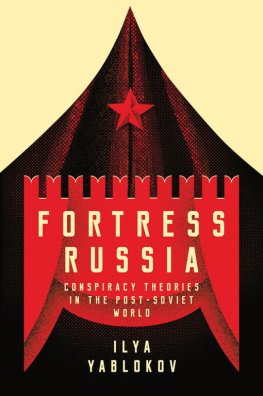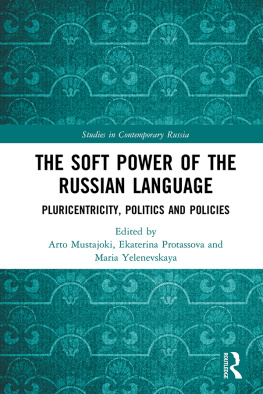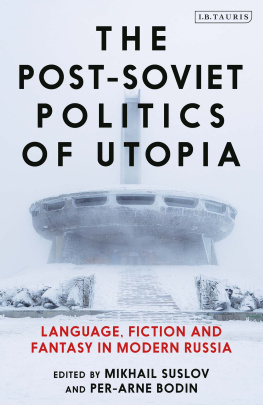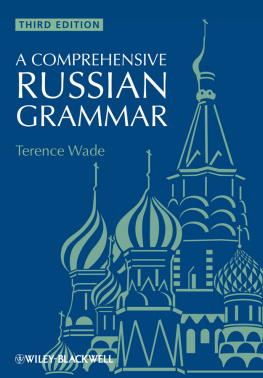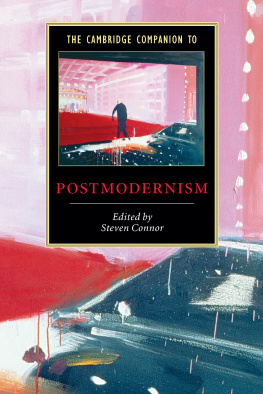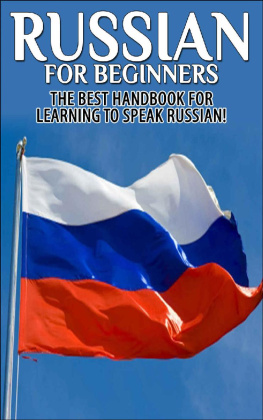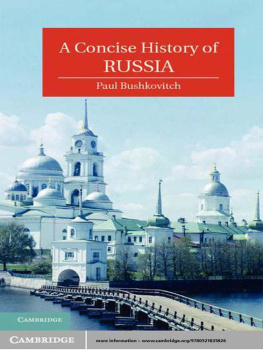RUSSIAN POSTMODERNISM
RUSSIAN POSTMODERNISM
New Perspectives on Post-Soviet Culture
Mikhail Epstein, Alexander Genis,
and Slobodanka Vladiv-Glover
Translated by
Slobodanka Vladiv-Glover

First published in 1999
Revised edition published in 2016 by
Berghahn Books
2016 Mikhail Epstein, Alexander Genis and Slobodanka Vladiv-Glover
All rights reserved. Except for the quotation of short passages
for the purposes of criticism and review, no part of this book
may be reproduced in any form or by any means, electronic or
mechanical, including photocopying, recording, or any information
storage and retrieval system now known or to be invented,
without written permission of the publisher.
Library of Congress Cataloging-in-Publication Data
Epstein, Mikhail, author.
Russian postmodernism : new perspectives on late Soviet and post-Soviet culture / Mikhail Epstein, Alexander Genis and Slobodanka Vladiv-Glover ; translated by Slobodanka Vladiv-Glover. Second edition.
pages cm
Includes bibliographical references and index.
ISBN 978-1-78238-864-7 (pbk. : acid-free paper)
ISBN 978-1-78238-865-4 (ebook)
1. Russian literature20th centuryHistory and criticism.
2. Postmodernism (Literature)Soviet Union. 3. Postmodernism (Literature)Russia (Federation) I. Genis, Aleksandr, 1953 author. II. Vladiv-Glover, Slobodanka, author. III. Title.
PG3026.P67E67 2015
891.7090044dc23
2015004789
British Library Cataloguing in Publication Data
A catalogue record for this book is available from the British Library.
ISBN 978-1-78238-864-7 paperback
ISBN 978-1-78238-865-4 ebook
CONTENTS
Mikhail Epstein
Mikhail Epstein
Slobodanka Vladiv-Glover
Alexander Genis
Literary Manifestos by Mikhail Epstein
Cultural Manifestos by Mikhail Epstein
Alexander Genis
Alexander Genis
Alexander Genis
Slobodanka Vladiv-Glover
Slobodanka Vladiv-Glover
Mikhail Epstein
Mikhail Epstein
Mikhail Epstein
Alexander Genis
Mikhail Epstein
Mikhail Epstein
PREFACE TO THE FIRST EDITION
Thomas Epstein
L ike its Western counterpart, Russian postmodernism and the discourse surrounding it have proven to be a vast, rich, and diverse storehouse of competing ideas and aesthetics. Alternately intriguing and maddening, insightful and bombastic, humble and totalitarian, Russian postmodernism and its discourse raise questions, some of them quite unpleasant, that are nevertheless fundamental to the cultural experience of the last third of the twentieth century.
The instructiveness of the Russian case is in part a result of its unnaturalness: appearing with its all too familiar temporal lag (in this case, a result of decades of censorship and other forms of repression of the cultural process), Russian postmodernism presents a concentrated, intellectualized, and accelerated form of the phenomenon. Always taken with extremes, Russia has once again caught up, and with a vengeance, producing a body of challenging, sophisticated, and sometimes extremely radical postmodern texts. This is no less true for the discourse on postmodernism, as the present volume demonstrates.
Given the deconstructionist underpinnings of much postmodern discourse, it is only natural that we begin with a question for which we do not claim to have a definitive answer: Just what is Russian postmodernism? Is it merely one cultural trend among others, foregrounding play with the signifier, parody, de-centered discourse, and the absence of an organizing self? Or is postmodernism as such part of a larger cultural paradigm, the Postmodern, marked by a sense of fragmentation and historical breakdown or transition, to which artists of various stripes (Joseph Brodsky is but one telling example) have reacted, each in his or her own way? By this latter definition, we could talk about a Russian postmodern period in which the role of the avant-garde has been played by the postmodernists, largely synonymous with Moscow conceptualism. Finally, from the outside, might we not speak of postmodern discourse as but another example of the tyranny of the theoretical, ideological, and reductionistic over the diversity of real phenomena?
One thing is certain: Russian literature of the period stretching from the late 1960s to the present has been remarkably productive. It includes such canonically Russian and Soviet-Russian authors as Alexander Solzhenitsyn and Joseph Brodsky, the neo-modernists Voznesensky and Evtushenko, the Romantic lyricism of Akhmadulina, the traditional avant-garde aesthetics of Sapgir, Aigi, and Vsevolod Nekrasov, the post-symbolism of the metarealists Zhdanov, Shvarts, Krivulin, and Sedakova, the various forms of polystylistics (including Iskrenko, Eremenko, Parshchikov, and Dragomoshchenko, some of which is akin to American language poetry), and the postmodern visual arts avant-garde itself, led by the conceptualists Kabakov and Bulatov on one side, and the sots-artists
Although some theorists of Russian postmodernism have argued in favor of identifying socialist realism as the first manifestation of the postmodern spirit in Soviet culture,the something (or no-thing) that lies beyond. One of the central merits of the work here introduced is its highlighting of the spiritual and religious dimensions of this process; indeed the spiritualization of the postmodern aesthetic (or ethic) may be the most important distinction between Soviet-Russian and Western postmodernism.
Even more so than in the West, the 1970s and 1980s in Russia were a period of post-history (a period later to be called the era of stagnation by Soviet ideologues). Both officially and in theory, Soviet society had reached the paradise of communism, annulling history and time. However, while in practice the official culture continued to enforce a narrow, generally socialist-realist, aesthetic, in the underground a massive avant-garde flourished. Marginalized from the centers of official culture (in sociological terms, this official culture can be construed as roughly equivalent, mutatis mutandis, to Western popular culture), the writers, artists, and poets of the underground were free to organize themselves into bands of like-minded brethren, living outside the march of time. Employed as laborers, night watchmen, or not at all, they in fact lived for and through literature (an already venerable tradition in a country notorious for difficult living conditions). Whether using this intense engagement with culture for purposes of parody (as was essentially the case with the conceptualists) or for reconnecting with Russian spiritual and avant-garde traditions, in particular with the not yet canonic Khlebnikov, Mandelshtam, and Tsvetaeva, and the Oberiu poets Harms, Oleinikov, and Vvedensky (who themselves lived on the margins of official culture until their ultimate annihilation), these writers created a ready-made canonor anti-canonthat burst into the mainstream during the latter half of perestroika (that is, after the exhaustion of the dissident culture that had taken center stage in the mid-to late 1980s). Not surprisingly, the results of this integration were paradoxical: while in a purely literary sense the aesthetic and spiritual values of the likes of Shvarts, Zhdanov, Rubinshtein, and Prigov clearly won the day, definitively reconnecting Russia with a variety of lost modernist traditions, this same emergence into the public eye, and the gaining of general public respectability that followed, turned into a kind of death-knell for the underground culture itself.
Next page

